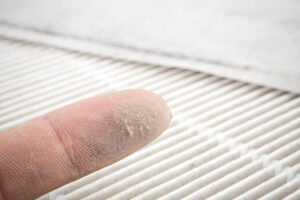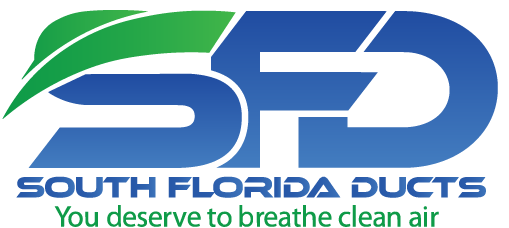
Understanding the Significance of Indoor Air Quality
Indoor air quality is not merely about comfort; it is a vital aspect of maintaining a healthy living and working environment. Exposure to various contaminants, such as allergens, mold, volatile organic compounds (VOCs), and even radon, can lead to a host of adverse health effects, ranging from respiratory distress and headaches to more severe conditions like lung cancer. By proactively assessing the air quality in your indoor spaces, you can take the necessary steps to safeguard the well-being of your family, employees, or building occupants.
Identifying the Culprits: Common Indoor Air Pollutants
A comprehensive IAQ assessment can shed light on the specific pollutants that may be compromising the air quality in your home or workplace. Some of the most common contaminants that can be detected include:
Mold and Mildew
Damp conditions and poor ventilation can provide the perfect breeding ground for mold and mildew, which are known allergens and can trigger respiratory issues, especially in individuals with sensitivities.
Volatile Organic Compounds (VOCs)
These chemicals, often found in household products, building materials, and furnishings, can be released into the air and have been linked to both short-term and long-term health effects.
Carbon Monoxide
This odorless, colorless gas can be a silent killer, and its presence is often attributed to malfunctioning HVAC systems or improper ventilation.
Radon
A radioactive gas that seeps from the ground, radon is a leading cause of lung cancer and can accumulate in buildings, making it a critical concern for homeowners and businesses alike.
Allergens and Particulate Matter
Dust, pet dander, pollen, and other airborne particulates can trigger allergic reactions and respiratory problems, especially for those with pre-existing conditions.
The IAQ Testing Process: What to Expect
When you decide to have an indoor air quality assessment conducted, the process typically involves several key steps:
Visual Inspection
The assessment team will begin by thoroughly inspecting your indoor spaces, looking for visible signs of issues, such as water damage, mold growth, or the presence of potential pollutant sources.
Sample Collection
Depending on the specific concerns, the team may collect air, surface, or bulk samples from various locations within your building. These samples will then be sent to a laboratory for analysis.
Comprehensive Analysis
The collected samples will undergo rigorous testing to determine the types and concentrations of contaminants present in your indoor air. This information is crucial for identifying the root causes of any air quality problems.
Detailed Reporting
Upon completion of the assessment, you will receive a detailed report outlining the findings, including the specific pollutants detected, their levels, and the potential sources. This report will also include recommendations for remediation and ongoing monitoring.
Addressing Indoor Air Quality Issues
Armed with the insights from your IAQ assessment, you can now take proactive steps to improve the air quality in your indoor spaces. Some common remediation strategies include:
HVAC System Maintenance and Upgrades
Ensuring that your heating, ventilation, and air conditioning (HVAC) system is functioning optimally is crucial for maintaining good indoor air quality. This may involve regular filter changes, duct cleaning, and even system upgrades.
Mold and Moisture Control
Addressing any sources of excess moisture, such as leaks or high humidity levels, is essential for preventing mold growth and mitigating its associated health risks.
Ventilation and Air Filtration
Improving the ventilation in your indoor spaces and using high-efficiency air filters can help remove airborne contaminants and improve the overall air quality.
Source Reduction
Identifying and eliminating or reducing the use of products and materials that emit VOCs or other pollutants can also contribute to cleaner indoor air.
The Importance of Ongoing Monitoring
While a one-time IAQ assessment can provide valuable insights, maintaining a regular monitoring schedule is crucial for ensuring the continued well-being of your indoor environment. Factors such as seasonal changes, renovations, or the introduction of new materials can all impact air quality over time.
By partnering with professional IAQ consultants, you can establish a comprehensive plan for ongoing monitoring and proactive maintenance, ensuring that the air your family, employees, or building occupants breathe remains clean, safe, and healthy.
The Role of Professional IAQ Consultants
Navigating the complexities of indoor air quality can be a daunting task, which is why seeking the expertise of professional IAQ consultants is highly recommended. These experts possess the knowledge, tools, and experience necessary to:
- Accurately identify the presence and sources of indoor air pollutants
- Develop tailored remediation strategies to address specific issues
- Provide guidance on the selection and implementation of air purification systems
- Offer ongoing support and monitoring to maintain optimal indoor air quality
By collaborating with reputable IAQ consultants, you can have peace of mind knowing that your indoor spaces are safe, comfortable, and conducive to the health and well-being of all who occupy them.
Our Air Duct Cleaning Services Improves the Air Quality in Home and Offices
Our Air Duct Cleaning process is designed to remove the maximum amount of dirt and dust possible. We achieve an extremely high level of cleaning without damaging your ducts or contaminating your home.
> Learn More
In an era where indoor air quality is increasingly recognized as a critical factor in overall health and productivity, conducting regular IAQ assessments has become a necessity, not a luxury. By understanding the potential contaminants that may be lurking in your indoor spaces and taking proactive steps to address them, you can safeguard the well-being of your family, employees, or building occupants, while also enhancing the comfort and functionality of your indoor environment.
Contact Us (954-909-4281) For a Free Estimate
Book an Appointment
—
 About South Florida Ducts
About South Florida Ducts
Air Duct Cleaning
We remove the maximum amount of the dirt and dust possible.
> Learn More
Air Duct Restoration
Hospital grade duct restoration when ducts need more than a vacuuming.
> Learn More
Air Duct Installation
New air ducts vastly improve your AC’s efficiency and overall air quality.
> Learn More
A/C Services
From routine maintenance visits to custom installations, SFD does it all and does it well.
> Learn More

 About South Florida Ducts
About South Florida Ducts